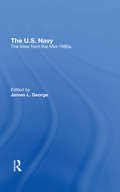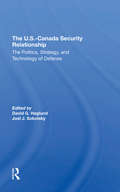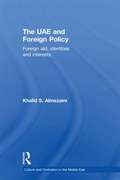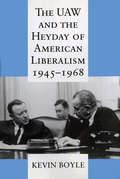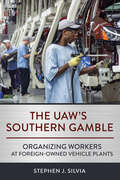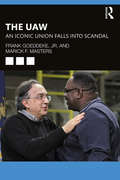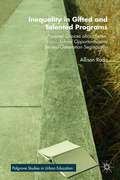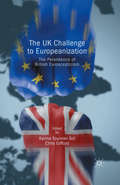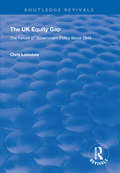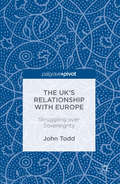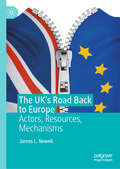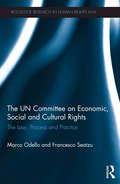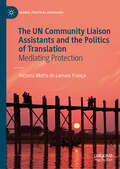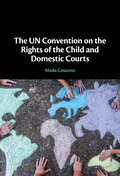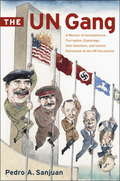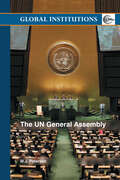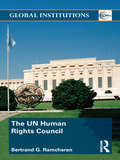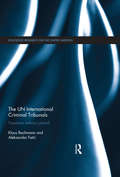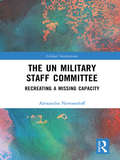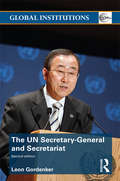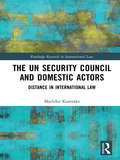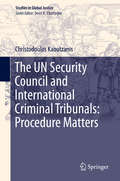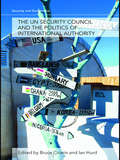- Table View
- List View
The U.s. Navy: The View From The Mid-1980s
by James L. GeorgeThe 1980s have ushered in a new era for the U.S. Navy. Despite projections that the number of ships it had at the start of the decade would decline, the total is increasing, and the Navy is predicting that it will reach its long-sought goal of a 600-ship Navy by 1990. The numbers have risen, but debate over the type of ships that should be constructed has not been resolved. Meanwhile, recent developments in Soviet shipbuilding have raised, for the first time, concerns about the possibility that the U.S. qualitative lead in naval technology may finally be slipping. At the same time, the international geostrategic situation and especially permanent U.S. deployments in the Indian Ocean and in the Caribbean have led to increasing naval commitments. These international developments have broad implications for the Navy, and the contributors to this volume provide a thorough reassessment at the midpoint of the decade.
The U.s.-canada Security Relationship: The Politics, Strategy, And Technology Of Defense
by David G Haglund Joel J SokolskyThis book focuses on the critical issues shaping the bilateral defense relationship of the U.S. and Canada, including the future of ballistic missile defense, the increased deployment of air- and sea-launched cruise missiles, and the growing debate within Canada over security relations with the US.
The UAE and Foreign Policy: Foreign Aid, Identities and Interests (Culture and Civilization in the Middle East)
by Khalid S. AlmezainiThis book offers a concise and detailed analysis of the United Arab Emirates (UAE) foreign aid as a main instrument in its foreign policy. Exploring the cultural factors that have impacted on the foreign policy behaviour of the UAE and its foreign aid, the author argues that Arabism and Islamic traditions have shaped the country’s foreign policy in general and foreign aid in particular. Examining in depth the motives and purposes of this large aid program through the lens of International Relations theories (mainly Constructivism and Rationalism), the book details the UAE’s foreign policy and aid program since its inception. Drawing on a comprehensive analysis of two major recipients of aid from the UAE – Palestine and Pakistan – the focus moves beyond the UAE to show how cultural factors have impacted on the behaviour of the authorities across the wider Arab Middle East. This critical assessment and analysis of the UAE’s foreign policy will be of particular interest to students, researchers and academics interested in Middle East studies, the Gulf States, Middle East politics, and foreign aid and foreign policy.
The UAW and the Heyday of American Liberalism, 1945–1968
by Kevin BoyleA Choice Magazine "Outstanding Academic Book for 1996""Kevin Boyle has done a masterful job of identifying the unique contribution of the UAW, not only to American Liberalism, but also to the nation and to all people. As contemporary labor and society at large search for new directions, this book should be required reading."—Victor G. Reuther"One of the many virtues of Kevin Boyle's brilliant and important history, The UAW and the Heyday of American Liberalism, is that it provides a clear picture of the road not taken."—The American Prospect"Intelligent, well written, and exhaustively researched,... Boyle's work... is part of an important and increasingly favorable reevaluation of the character of late New Deal social democracy."—Journal of American History"[Boyle's] book presents, with a remarkably assured tone and a mastery of materials, a persuasive narrative of the shortcomings of postwar liberalism from the labor perspective that was so important then and is so often ignored today."—American Political Science Review
The UAW's Southern Gamble: Organizing Workers at Foreign-Owned Vehicle Plants
by Stephen J. SilviaThe UAW's Southern Gamble is the first in-depth assessment of the United Auto Workers' efforts to organize foreign vehicle plants (Daimler-Chrysler, Mercedes-Benz, Nissan, and Volkswagen) in the American South since 1989, an era when union membership declined precipitously. Stephen J. Silvia chronicles transnational union cooperation between the UAW and its counterparts in Brazil, France, Germany, and Japan and documents the development of employer strategies that have proven increasingly effective at thwarting unionization.Silvia shows that when organizing, unions must now fight on three fronts: at the worksite; in the corporate boardroom; and in the political realm. The UAW's Southern Gamble makes clear that the UAW's failed campaigns in the South can teach hard-won lessons about challenging the structural and legal roadblocks to union participation and effectively organizing workers within and beyond the auto industry.
The UAW: An Iconic Union Falls into Scandal
by Marick F. Masters Frank Goeddeke, Jr.This book analyzes the multi-faceted scandal that has tarnished the reputation of the United Auto Workers (UAW), an iconic union revered for its commitment to union democracy and ethical practices, showing what went wrong to lead the spread of corruption and how to remedy it. Masters and Goedekke provide a historical context of the rise and decline of the UAW, leading to "a culture of corruption" and resulting in the indictment or conviction of 15 union and corporate officials for the misuse of tens of millions of dollars. The book evaluates the various proposed reforms of the UAW's financial practices and ethical standards, including the possibility of a government takeover. It raises questions about the wisdom of such a takeover, based on the problems associated with the government takeover of the Teamsters. The authors recommend that the UAW convene a special constitutional convention to consider reforms in governance and hiring practices. Providing a clear depiction of this scandal and the UAW’s systemic flaws, and suggesting potential remedies, this book will appeal to the tens of thousands of union officers and members keenly interested in the state of labor and an iconic union, their corporate counterparts in management, academics, students, and journalists in the fields of business and society, employee relations, law, labor relations, and management.
The UK Challenge to Europeanization: The Persistence of British Euroscepticism
by Chris Gifford Karine Tournier-SolThis timely contribution pulls no punches and views the UK as institutionally Eurosceptic across politics and society, from the press to defence. It represents a rich and original contribution to the emerging field of Eurosceptic studies, and a key contribution to this important issue.
The UK Challenge to Europeanization: The Persistence of British Euroscepticism
by Karine Tournier-SolThis timely contribution pulls no punches and views the UK as institutionally Eurosceptic across politics and society, from the press to defence. It represents a rich and original contribution to the emerging field of Eurosceptic studies, and a key contribution to this important issue.
The UK Economy in the Long Expansion and its Aftermath
by Stephen Wright Peter Smith Jagjit S. Chadha Alec Chrystal Chadha, Jagjit S. and Chrystal, Alec and Pearlman, Joe and Smith, Peter and Wright, Stephen Joe PearlmanThe financial crisis of 2007–11 has now been analysed and explained from almost every conceivable standpoint. Far less attention has been paid to the long business cycle expansion that started in 1992 and provided an exceptional period of macroeconomic stability in the UK. To many it seemed that the main problem of the UK economy had been solved: that of sustained non-inflationary economic growth. This book brings together senior macroeconomists from universities and the Bank of England to look at what policy-making lessons can be learned from looking at the period of expansion that preceded the financial crisis. It does so with the twin aims of encouraging more policy-focused research on the UK and encouraging policy debate in the aftermath of the financial crisis and the prolonged economic recession. Students, researchers and practitioners with an interest in the UK economy will need to absorb the lessons of this book.
The UK Equity Gap: The Failure of Government Policy Since 1945 (Routledge Revivals)
by Chris LonsdaleFirst published in 1997, this volume investigates the important economic issue of small business finance. The inability of small firms to acquire equity finance is believed to be an important factor in the UK’s continued relative economic decline. Throughout the post-war period both Labour and Conservative Governments have recognised this and devised micro-economic policies to address the issue. In this book the author assesses the effectiveness of these policies, particularly focusing upon the past 20 years when policy has been accompanied by the development of the UK venture capital industry. The author concludes that government policy has been largely unsuccessful in bridging the equity gap, but that the problem could be addressed effectively if only lessons were learned from the past. This book provides those lessons, and is particularly timely given that the new Labour Government is currently reviewing policy in this area.
The UK's Relationship with Europe
by John ToddThis book provides an accessible and timely analysis of how the British discourse on Europe has evolved over the past forty years. It focuses on three key episodes: the 1975 referendum on the UK's continued membership of the European Economic Community; the 1992-3 debates on ratification of the Maastricht Treaty; and the more recent proto-referendum debates sparked by David Cameron's Bloomberg speech in January 2013. Using a discourse-analytical approach, the book analyses how political and media voices seek to delineate a British sense of self from a Continental other. Importantly, the book also pays close attention to the rising prominence of immigration issues within the British discourse on Europe.
The UK's Road Back to Europe: Actors, Resources, Mechanisms
by James L. NewellDespite the efforts of leading party spokespersons in the UK to marginalise Brexit as an issue of public discussion, it shows no sign of disappearing from the political agenda any time soon. Meanwhile, a significant case can be made for the view that almost regardless of future developments, it will remain a significant issue simply because of the importance of Europe, economically and strategically, to the UK. EU-UK relations are ongoing; therefore, Brexit is a process not an event. For example, the 2021 EU-UK Trade and Cooperation Agreement has established organisational machinery for permanent negotiations on trade and other matters between the UK and the EU and has to be reviewed every five years. Brexit has had significant consequences for the integration of the United Kingdom: consequences that are still playing themselves out through the events surrounding the Northern Ireland Protocol and the prospects for a second referendum on Scottish independence. It has given rise to a lively academic and media debate on the meaning and significance of ‘Englishness’. If ‘the Brexit experiment’ involving the UK’s almost complete withdrawal from the institutional frameworks of the EU, comes to be perceived as having been a failure, then there is little doubt that the forces, within the UK, that have never reconciled themselves to Brexit, will grow stronger. The purpose of this book is therefore to assess the strength of these forces and whether a road back to EU membership is likely to be taken any time soon.
The UN Committee on Economic, Social and Cultural Rights: The Law, Process and Practice (Routledge Research In Human Rights Law Ser.)
by Marco Odello Francesco SeatzuThe book concerns the study and analysis of the UN Committee on Economic, Social and Cultural Rights from an international legal perspective, taking into consideration the adoption of the 2008 Optional Protocol to the International Covenant on Economic, Social and Cultural Rights (ICESCR).The volume provides a detailed account of the structure and functioning of the Committee on Economic, Social and Cultural Rights in the light of its jurisprudence, through a study of the Committee’s procedures and practices (periodic reports and general comments), including taking into account the Optional Protocol for individual complaint procedure. The book considers the possible implications of the work of this Committee on other UN Committees, such as the Human Rights Committee and the UN Committee on the Rights of the Child, as well as considering the repercussions of its work on the international protection of fundamental rights, such as the right to education, to health and adequate food.The UN Committee on Economic, Social and Cultural Rights will be of particular interest to academics and students of International and Human Rights law.
The UN Community Liaison Assistants and the Politics of Translation: Mediating Protection (Global Political Sociology)
by Victoria Motta de Lamare FrançaThis book explores how the United Nations (UN) attempts to stabilise and justify an ambivalent meaning of protection and its socio-political roles in the Protection of Civilians agenda. Negotiating between different notions of translation, the research takes the Community Liaison Assistants (CLAs) as an analytical prism to complexify the efforts to construct representations of protection. Created alongside the United Nations Stabilisation Mission in the Democratic Republic of the Congo (MONUSCO), the CLAs are local staff tasked with improving the mission's engagement with the local population, given their supposed linguistic-cultural skills. The CLAs are also part of the stabilisation turn in UN doctrine, adhering to counterinsurgency tactics and instrumentalising language and culture to obtain intelligence and support of the local population. Following a poststructuralist and postcolonial approach inspired mainly by the works of Jacques Derrida and Homi Bhabha, this book proposes deconstructing the representations applied to the CLAs by analysing the discourses presented in the UN reports and doctrinal documents.
The UN Convention on the Rights of the Child and Domestic Courts
by Meda CouzensThis important contribution to children's rights scholarship brings fresh eyes to the complicated relationship between domestic law and international law in the practice of domestic courts. Through a critical assessment of the judicial application of the Convention on the Rights of the Child in four jurisdictions (Australia, France, South Africa and the United Kingdom), the book demonstrates that the traditional rules of reception remain an essential starting point in understanding how national courts apply the Convention but are unable to explain all forms of judicial engagement therewith. The book shows that regardless of the legal system (monist, dualist, hybrid), courts can apply the Convention meaningfully especially when the domestic structure of reception converges with it. The comparative international law perspective used in the book and the heterogenous sample of jurisdictions analysed enabled the author to distil insights valid for other jurisdictions.
The UN Gang
by Pedro A. SanjuanOn the day Pedro Sanjuan moved into his new office at the UN Secretariat in 1984, he had the foresight to unscrew his telephone receiver. Out fell a little packet of high-grade cocaine. When he confronted the undersecretary to the chief Soviet diplomat—really a KGB colonel and the top Russian spy—the agent laughed good-naturedly and congratulated him on passing the test. That was the beginning of Sanjuan’s long, peculiar odyssey into the looking-glass world of the United Nations Secretariat. Pedro Sanjuan had been appointed by then–Vice President George H. W. Bush to a high-ranking UN post. His real mission: to keep an eye on Soviet espionage activities. Over the years, the Russians had managed to install nearly four hundred KGB and GRU agents in strategic positions throughout the Secretariat, and had turned it into a massive spy facility, operating openly and with absolute impunity on American soil. But this, it turned out, was the least of the problem. Sanjuan soon discovered that incompetence, corruption, anti-Semitism, and outright criminality were rife throughout the UN Secretariat. Among the shady activities that he personally observed or documented were rigged bidding for major service contracts; drug transactions conducted in the UN’s parking garage; sale of shotguns and beryllium directly out of the UN building; ties to global organized crime figures; use of UN Information Centers and other agencies to disseminate anti-US and pro-PLO propaganda; systematic theft and abuse of UN facilities and budgets in East Africa; graft and corruption in Vienna; widespread sexual harrassment; use of the UN employee’s lounge to plan anti-Israel and anti-US activities by Muslim delegates; open celebration of 9/11 by said delegates in the halls of the UN; and inexplicable tolerance of all of the above on the part of the secretary general and the US government. Sanjuan’s cast of characters includes every secretary general from Kurt Waldheim to Kofi Annan, and a large number of bureaucratic rogues and scoundrels. Much of what he documents inThe UN Gangis absurdly comical. But its seriousness should not be overlooked. Ultimately, Sanjuan argues, the weakness and corruption of the UN is our own responsibility. During the Cold War, the superpowers conspired to render it a useless forum for international pronouncements and posturing. Now, however, it has become the focal point of global resistance to American interests and policies. Will we continue to host an unholy convention of anti-Semitic, America-hating hypocrites? Or will we take steps to reform this once-proud institution and make it serve the ends of peace, justice, and international order? Only time will tell.
The UN General Assembly (Global Institutions)
by M.J. PetersonThe United Nations General Assembly is arguably the most important discussion forum in global politics. This is a concise and accessible introduction to its history, organization and politics. Examining the development of the Assembly as a forum for improving international cooperation, this study details its development of shared norms and goals in the political context of the immediate post-World War II era. The Assembly has had to adapt quickly to the Cold War, the South-North contentions over development, the dissolution of the Soviet bloc and the rise in concern about terrorism. This study also presents a fascinating look ahead to three potential futures: a world of states, a world government, and a world of network governance. To flourish in any of these contexts it shows how the practices of the institution will require considerable change. The common criticisms of the Assembly are also covered in depth, such as that it is just a talking shop; that it is hamstrung by the Security Council and that it benefits the rich at the expense of the poor. This is an ideal book for students of the United Nations, international organizations and global governance.
The UN Human Rights Council (Global Institutions #112)
by Bertrand G. RamcharanThe UN Human Rights Council provides a detailed insight into this important organization. The UN was founded in the hope that lasting peace would be built on the foundations of human rights and economic and social progress. In 2006 the Commission on Human Rights was replaced by the Human Rights Council as the principal UN body concerned with human rights. It is even possible that the council might eventually become a principal organ of the world organization. The Human Rights Council is already the subject of major public interest and controversy. The Council has been criticized for having dropped some of the protection strategies of the former commission and this book aims to present a balanced view of the council, outlining its current role, acknowledging where it has made positive contributions, highlighting the deficiencies, and identifying options for improving the body’s future work. This book is destined to become the leading text on the Human Rights Council and will be essential reading for all those concerned with the future of international relations international organizations and human rights.
The UN International Criminal Tribunals: Transition without Justice? (Routledge Research on the United Nations (UN))
by Klaus Bachmann Aleksandar FatićBoth the International Criminal Tribunal for the former Yugoslavia (ICTY) and the International Criminal Tribunal for Rwanda (ICTR) are now about to close. Bachmann and Fatic look back at the achievements and shortcomings of both tribunals from an interdisciplinary perspective informed by sociology, political science, history, and philosophy of law and based upon on two key notions: the concepts of legitimacy and efficiency. The first asks to what extent the input (creation) of, the ICTY and the ICTR can be regarded as legitimate in light of the legal and public debate in the early 1990s. The second confronts the output (the procedures and decisions) of the ICTY and the ICTR with the tasks both tribunals were assigned by the UN Security Council, the General Assembly, and by key organs (the president and the chief prosecutors). The authors investigate to what extent the ICTY and the ICTR have delivered the expected results, whether they have been able to contribute to 'the maintenance of peace', 'stabilization' of the conflict regions, or even managed to provide 'reconciliation' to Rwanda. Furthermore, the book is concerned with how many criminals, over whom the ICTY and the ICTR wield jurisdiction, have actually been prosecuted and at what cost. Offering the first balanced and in depth analysis of the International Criminal Tribunals, the volume provides an important insight into what lessons have been learned, and how a deeper understanding of the successes and failures can benefit the international legal community in the future.
The UN Military Staff Committee: Recreating a Missing Capacity (Global Institutions)
by Alexandra NovosseloffThe UN Military Staff Committee is a misunderstood organ, and never really worked as it was initially envisaged. This book charts its historic development as a means to explain the continuous debate about the reactivation of the Military Staff Committee and, more generally, the unsatisfied need for the Security Council to have a military advisory body so that it does not only depend on the Secretariat to make its decisions on military and security affairs. The author takes a clear stand for the establishment of a military committee with real weight in the decision-making process of the Security Council related to peace operations. The Security Council remains the only international body making decisions in peace and security, authorizing military deployment without advice from a collective body of military experts and advisers. Recreating such a body is the missing part of all UN reform structures undertaken in past years. As the number of UN troops deployed increases, this book will be an important read for all students and scholars of international organisations, security studies and international relations.
The UN Secretariat�s Influence on the Evolution of Peacekeeping
by Silke WeinlichUsing a unique analytical framework, the UN Secretariat's Influence on the Evolution of Peacekeeping reveals deep insights in the UN's peacekeeping decision-making and shows that even international bureaucracies with limited autonomy can shape international politics.
The UN Secretary-General and Secretariat (Global Institutions)
by Leon GordenkerThe new edition of this accessible introduction to the important role of the United Nations Secretary-General continues to offer a keen insight into the United Nations – the Secretariat and its head, the Secretary-General, summing up the history, structure, strengths and weaknesses, and continuing operations of an ever-present global institution. Behind the public face of the Secretary-General, Ban Ki-moon and his predecessors, an active corps of officials and advisers face ceaseless pressures and challenges. This clear and concise introduction examines both the solid and substantive work of the UN’s permanent staff and the role of the Secretary-General in policy development. The 2nd edition has been thoroughly revised and updated to reflect: the retirement of Kofi Annan and the appointment of Ban Ki-moon as the new UN Secretary General the withdrawal of John Bolton as permanent representative of the United States and the consequent softening of the approach of his government to the UN developments in the global economy and international security dilemmas the change of administration in the United States. Written by a recognized authority on the subject, this book continues to be the ideal interpretative introduction for students of the UN, international organizations and global governance.
The UN Security Council and Domestic Actors: Distance in international law (Routledge Research in International Law)
by Machiko KanetakeThis book analyses the exercise of authority by the UN Security Council and its subsidiary organs over individuals. The UN Security Council was created in 1945 as an outcome of World War II under the predominant assumption that it exercises its authority against states. Under this assumption, the UN Security Council and those individuals were ‘distanced’ by the presence of member states that intermediate between the Security Council’s international commands and those individuals that are subject to member states’ domestic law. However, in practice, the UN Security Council’s exercise of authority has incrementally removed the presence of state intermediaries and reduced the Security Council’s distance to individuals. This book demonstrates that this phenomenon has increased the relevance of domestic law in developing the international normative frameworks governing the UN Security Council and its subsidiary organs in safeguarding the rights, obligations, and interests of those affected individuals. This book presents how the UN Security Council’s exercise of authority has been received at the domestic level, and what would be the international implications of the Security Council’s extensive encounter with the actors who primarily reside in a domestic legal order.
The UN Security Council and International Criminal Tribunals: Procedure Matters (Studies in Global Justice #20)
by Christodoulos KaoutzanisThe book explains why and how the UN Security Council authorizes international criminal investigations into mass atrocities. In doing so, it tackles head-on the obvious double standards of global justice, where few atrocities get investigated and most slip below the headlines. The book argues that the Council’s decision-making procedure is central to understanding the Council’s decisions. This procedure is broken into three distinct steps, namely the role of diplomats at the Council, the Council’s reliance on third parties and the Council’s resort to precedent. The volume documents that the Council authorized international criminal investigations only into the handful of mass atrocities for which the Council’s deliberations successfully completed each of these three steps. Written for both scholars and practitioners, the book combines insights from the fields of international relations, international law and human rights. Through archival research and interviews with UNSC diplomats who took part in deliberations on atrocities, the volume presents evidence that supports its argument across cases and across time. In doing so, the book avoids the yes/no (or 0 vs 1) tendency of many social science projects, thereby acknowledging that there is no silver bullet to explain the work of the Council’s five permanent and ten elected members. Chris Kaoutzanis's Procedure Matters is a deep dive into how the UN Security Council actually works in dealing with some of the world's worst atrocities. Showing that UN procedure does matter, Kaoutzanis illuminates the limited accountability for international crimes that can be expected from that vital institution. As importantly, he offers a road map for how to use UN legitimating procedures to navigate the power politics of that august body. This is a map no scholar of international institutions and no human rights activist should be without. Michael Doyle, Columbia University This project recognizes what the scholarly literature has generally ignored or deemphasized: the central role of the Security Council in responding to mass atrocity situations. As much as international lawyers would hate to admit it, the legal response to international crimes is initially controlled not by international judges and tribunals, but rather by the Security Council and its geo-political and diplomatic complications. Kaoutzanis has put the sun back at the center of our solar system. Jens David Ohlin, Cornell Law School
The UN Security Council and the Politics of International Authority (Security and Governance)
by Ian Hurd Bruce CroninObserves how the growth of the political authority of the Council challenges the basic idea that states have legal autonomy over their domestic affairs. The individual essays survey the implications that flow from these developments in the crucial policy areas of: terrorism; economic sanctions; the prosecution of war crimes; human rights; humanitarian intervention; and the use of force. In each of these areas, the evidence shows a complex and fluid relation between state sovereignty, the power of the United Nations, and the politics of international legitimation. Demonstrating how world politics has come to accommodate the contradictory institutions of international authority and international anarchy, this book makes an important contribution to how we understand and study international organizations and international law. Written by leading experts in the field, this volume will be of strong interest to students and scholars of international relations, international organizations, international law and global governance.
